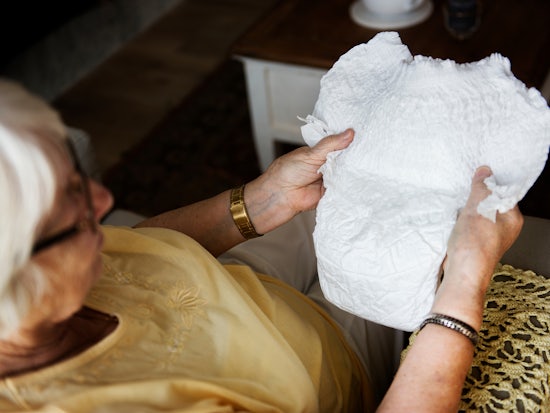Toilet humour trialled to tackle incontinence
Humour is being used to ‘hit back’ at a growing and silent health epidemic that leaves more than five million Australians embarrassed, in pain and at risk of anxiety, depression and other serious health issues, as part of a global awareness week.

Australians of all ages encouraged to take steps to ‘laugh without leaking’ this World Continence Awareness Week (Source: Shutterstock)
World Continence Week, which runs from 18-24 June, was launched in Australia by Federal Minister for Aged Care and Indigenous Health Ken Wyatt, who took the opportunity to encourage the large number of people affected to learn to ‘laugh without leaking’ and ‘live live to the full’ by making sure they seek help and receive the support available.
Minister Wyatt highlighted the financial dedication of the Government towards incontinence, which affects more than 1 in 4 Australians, saying that it is a “silent burden for too many”.
“The Government is providing in excess of $14 million over four years from 2016… to ensure all Australians have access to the information and support they need to get help for continence problems,” he says.
“That funding has helped the Continence Foundation create a new campaign ‘Laugh without Leaking’ which takes the larrikin approach to help more Australians get past any embarrassment and seek help.”
Chief Executive Officer (CEO) of the Continence Foundation Rowan Cockerell says that while continence issues are often curable, only 30 percent of people with a problem seek help, noting the stigma of the issue as a big reason preventing people from taking action.
“World Continence Week is a timely reminder that the majority of people affected by incontinence can be treated, better managed and even cured,” she says.
“We know that many people dismiss their leaking as a normal part of getting older or after having a baby but its not normal and can have a seriously negative impact on the daily life for millions of women, men and even children.
“It is important people make the call for help.”
Mrs Cockerell says the Continence Foundation is working with the Government to deliver the National Continence program providing awareness, information, resources, workforce education and advocacy – such as the National Continence Helpline and the National Public Toilet Map.
The Foundation has also enlisted the use of humour in the national campaign and teamed it with the services of popular comedian/actress Bev Killick, who has lived with incontinence her whole life.
“If you keep it hidden and secret it can become an even bigger problem,” Ms Killick says.
“Humour is a great tool for breaking down those barriers and showing people that they’re not alone and they can do something about it.”
Minister Wyatt echoes Ms Killicks remarks, saying that there is a lot that can be done to treat continence problems.
“Not only can people better manage the condition, it can even be cured,” he continues.
“The assistance isn’t limited to medical advice – one of the innovations is the very useful map of public toilets freely available online and via mobile phone app.
“Knowing you can easily and quickly locate one of the 19,000 loos listed across the country can help give people back their confidence, independence and freedom.”
More than 200 events are registered across the country as part of World Continence Awareness Week, including talks, activities, displays and performances all aimed at de-stigmatising incontinence and encouraging people to share their stories as ‘toilet humour’ and get treatment.
More information on continence can be found online or by calling the National Continence Helpline on 1800 330 066.
The National Public Toilet Map is also available online as well as via Apple and Android app stores.























